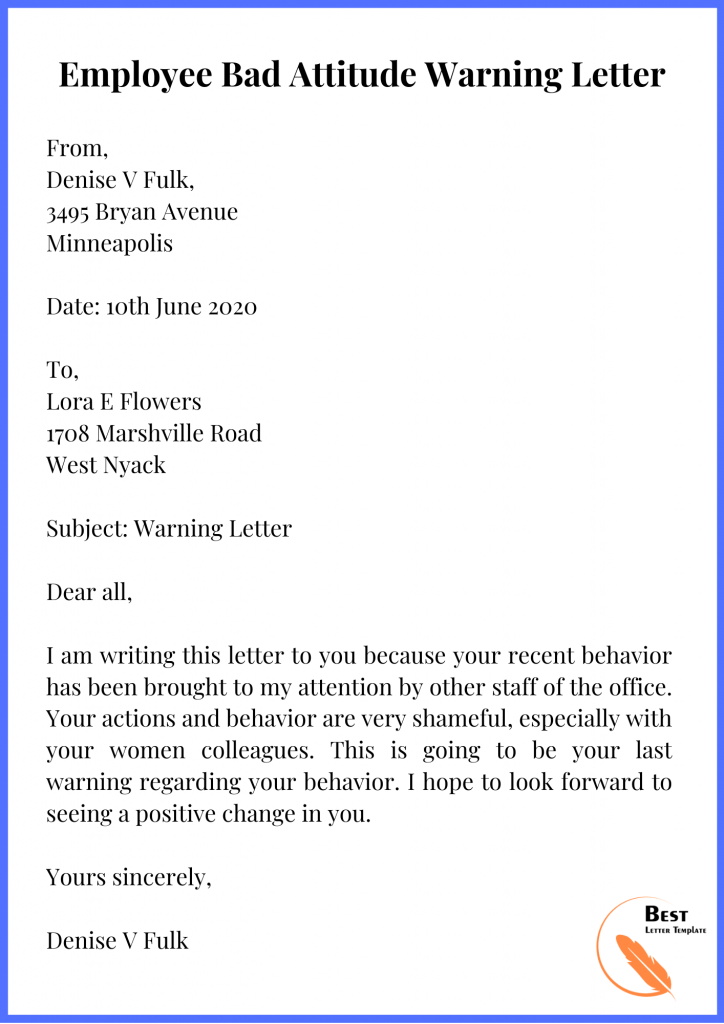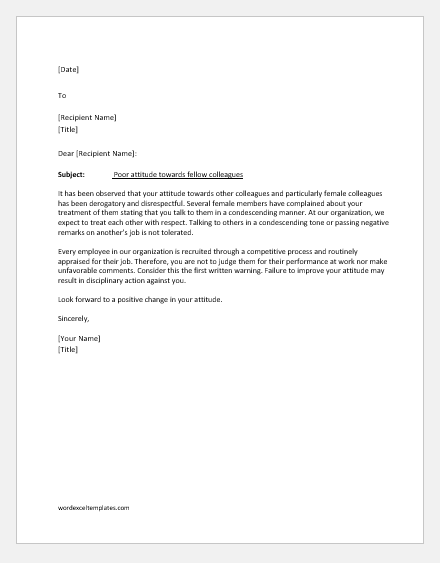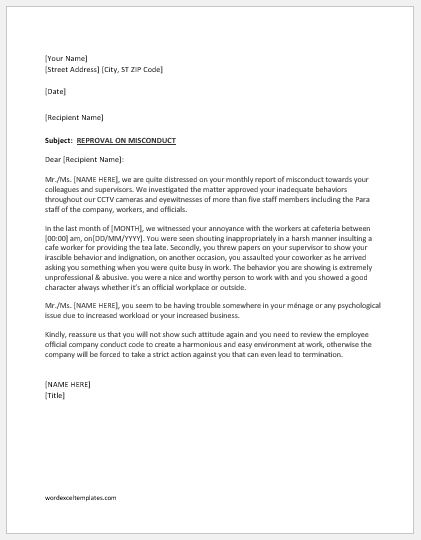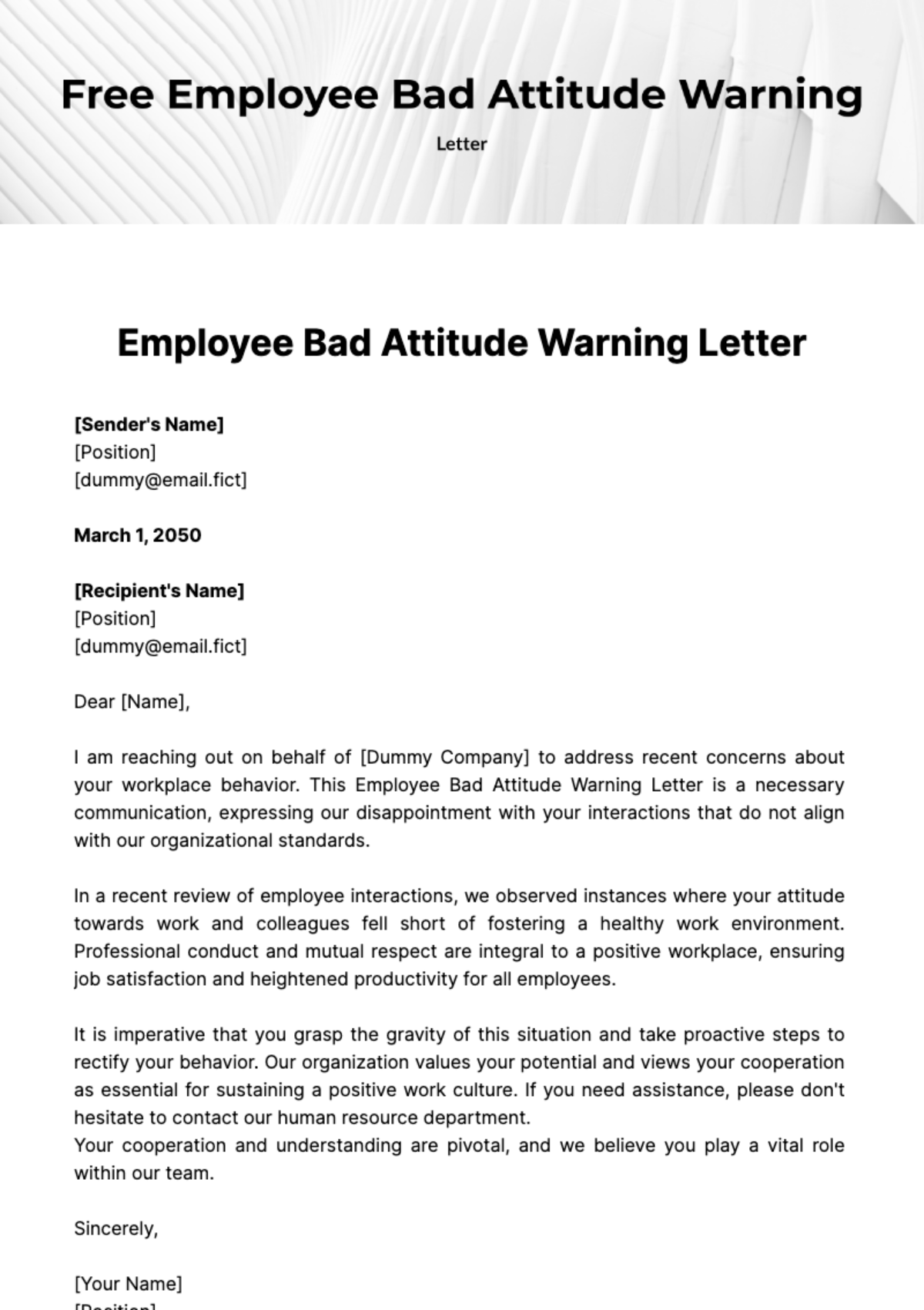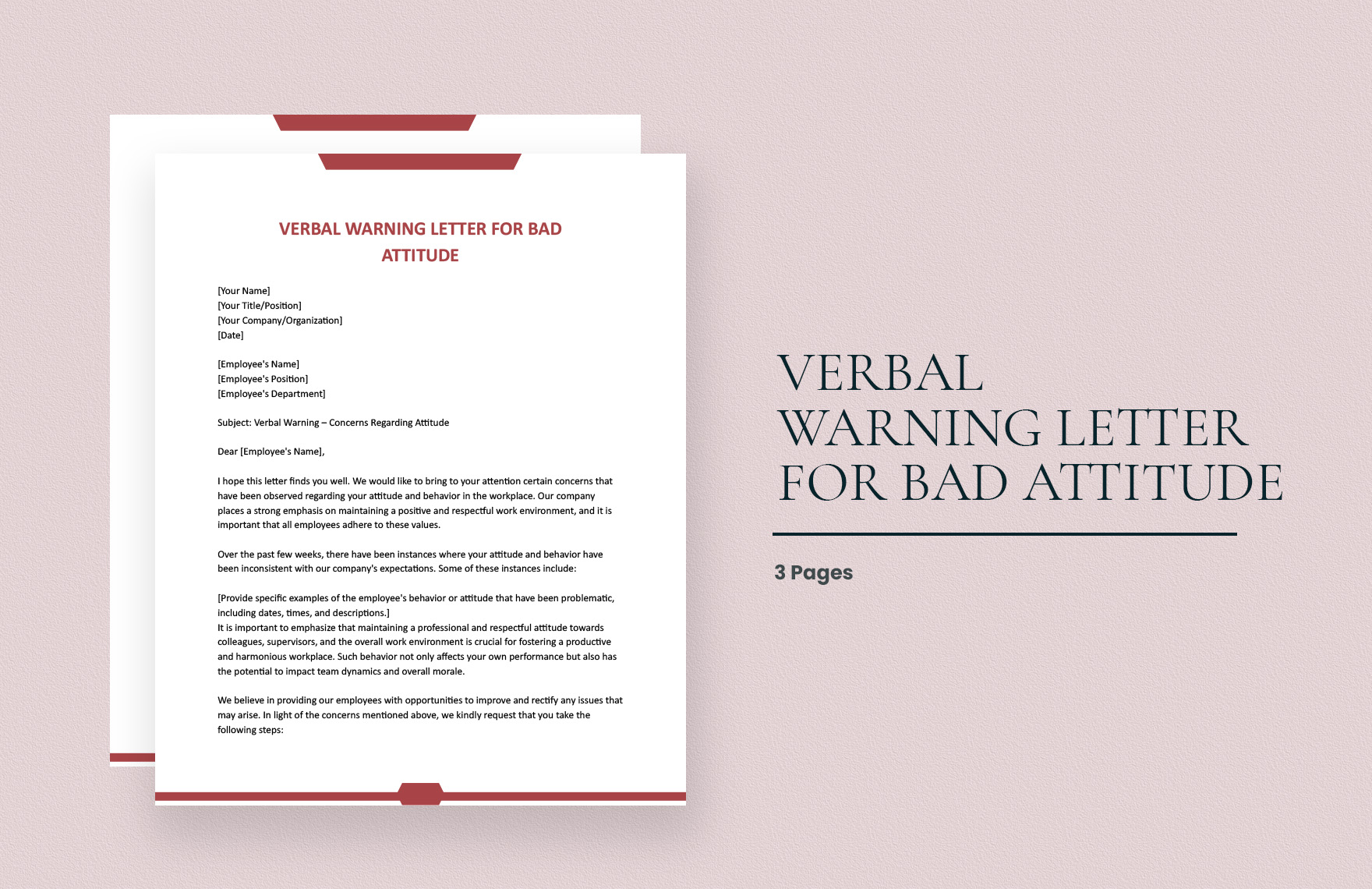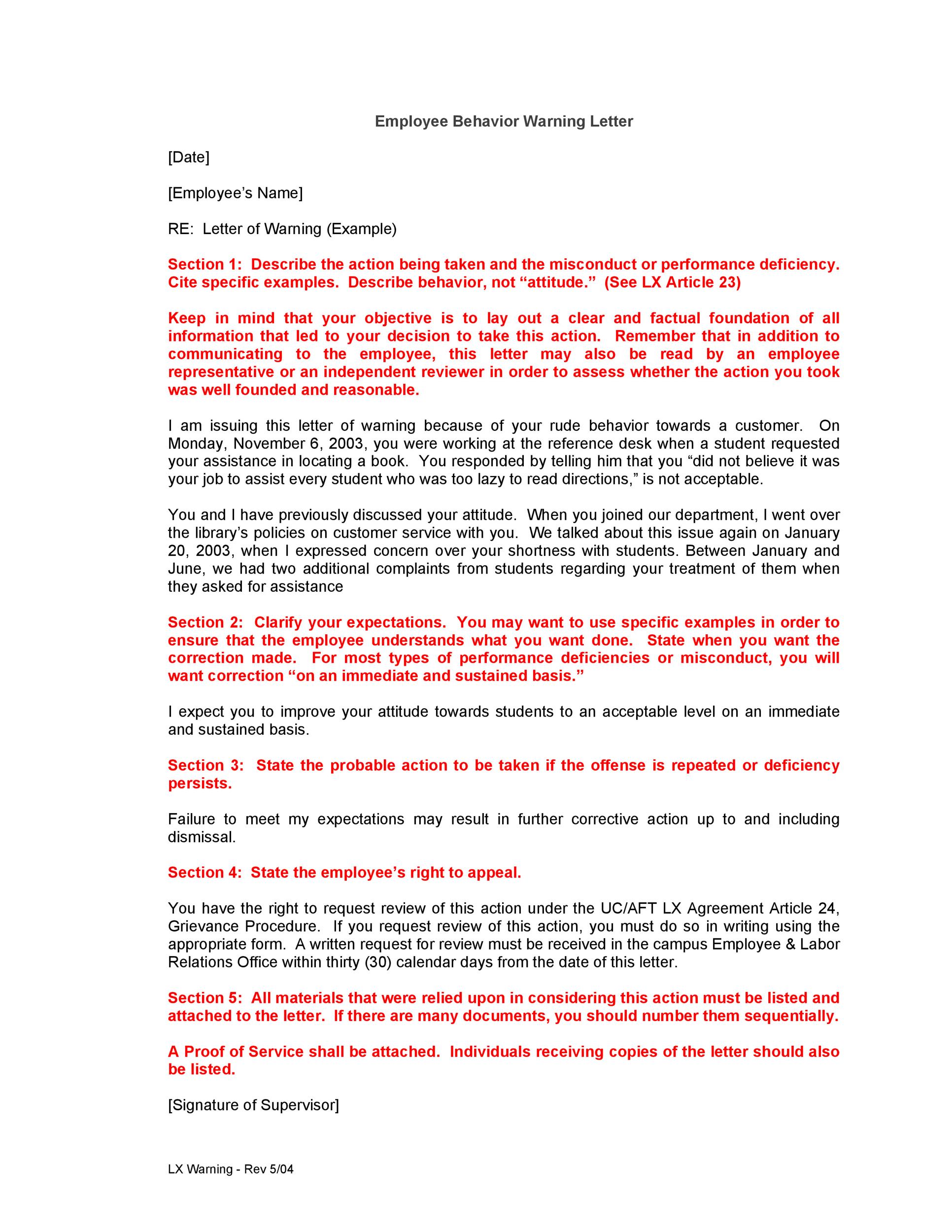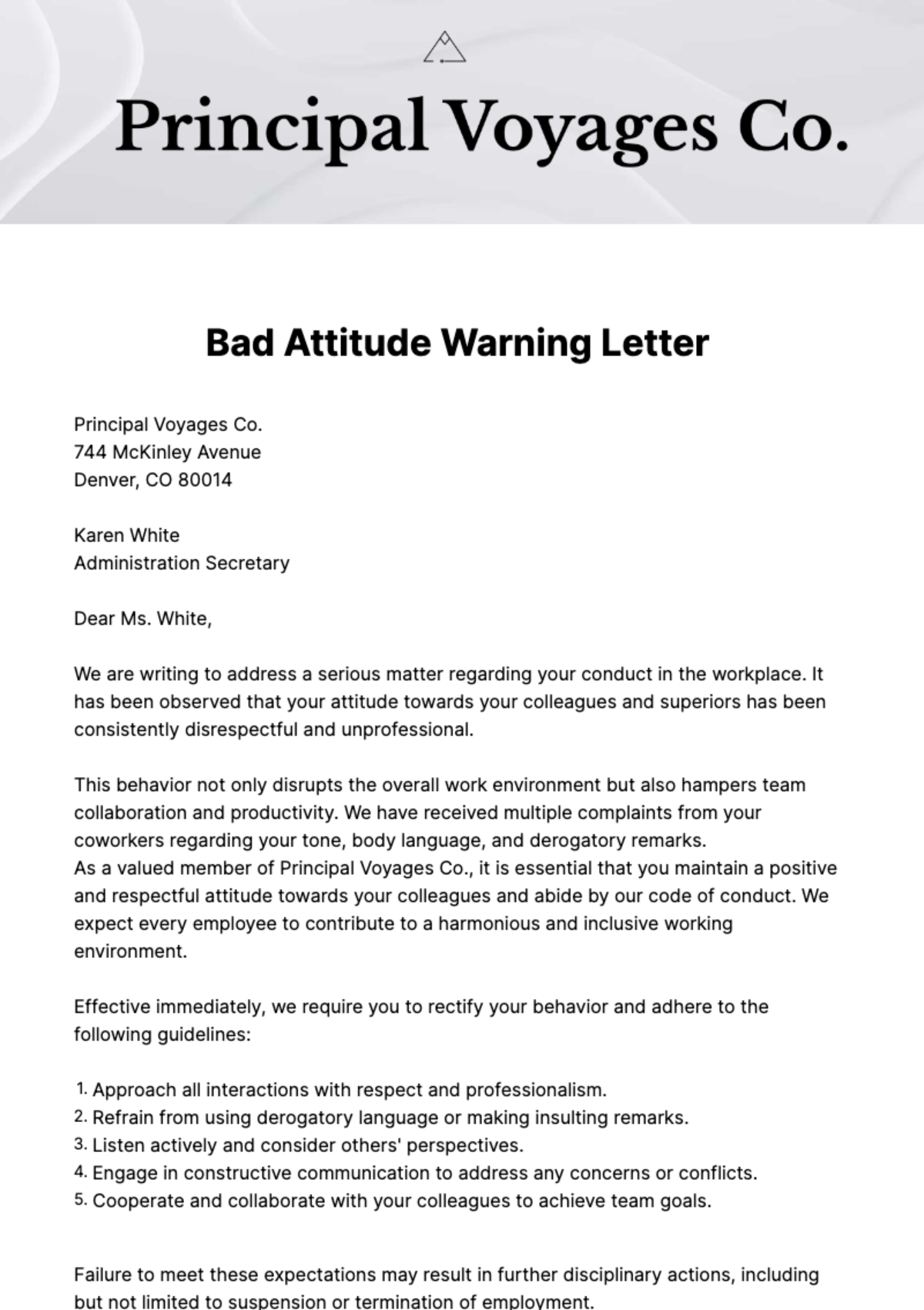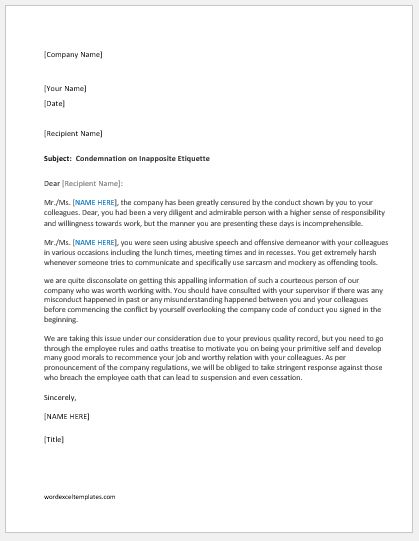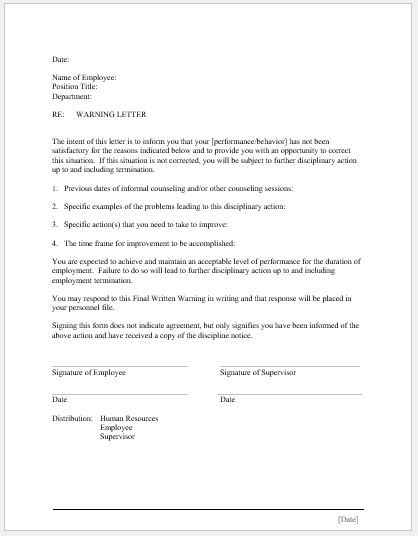Can You Write Up An Employee For Bad Attitude
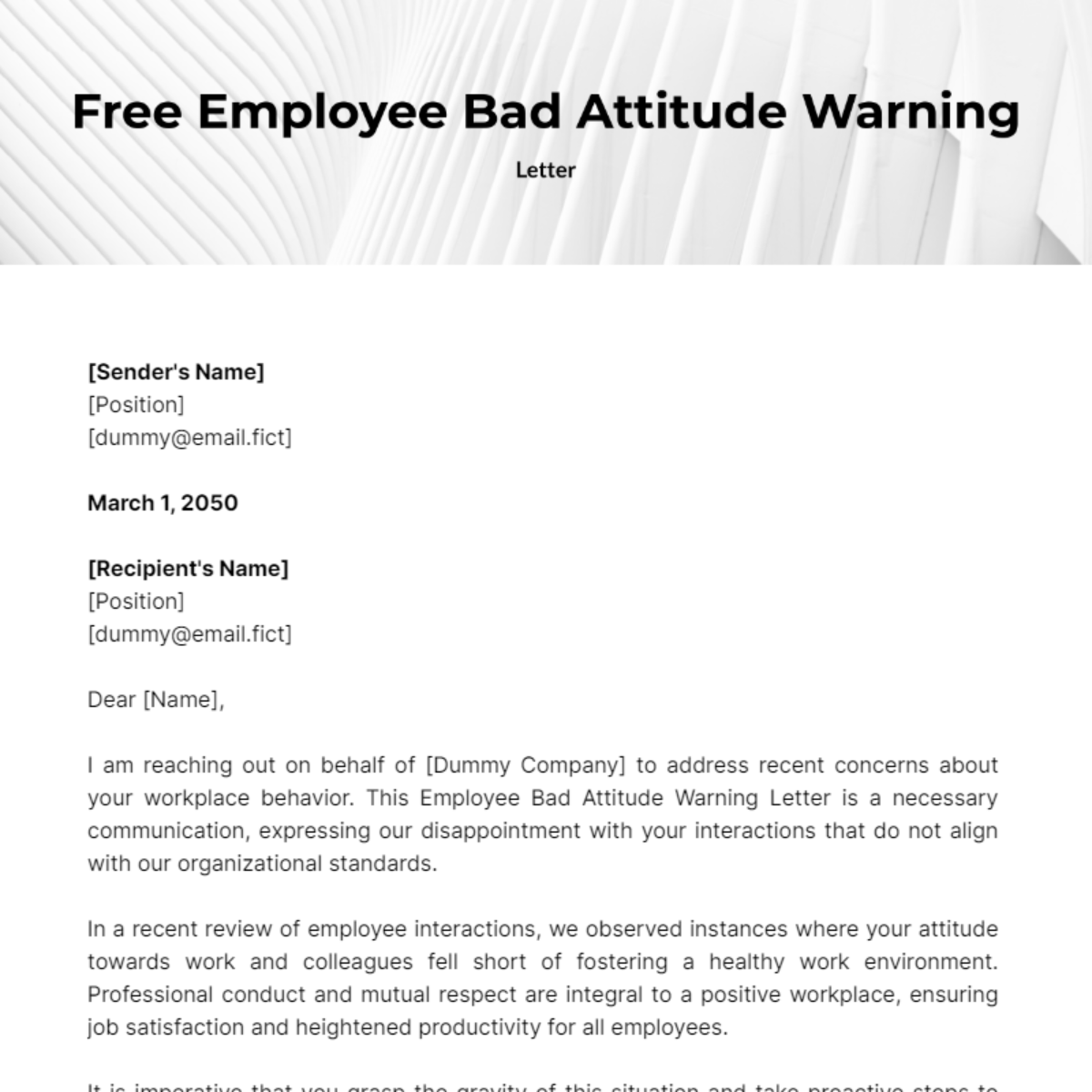
The question of whether an employer can formally reprimand an employee for a perceived "bad attitude" is a complex one, fraught with legal and ethical considerations. While employers generally have the right to manage employee performance and maintain a productive work environment, the subjective nature of "attitude" makes disciplinary action a delicate balancing act.
This article examines the legal landscape, practical challenges, and potential consequences of writing up an employee for attitude, drawing on expert opinions and relevant case studies to provide a comprehensive overview.
Defining "Bad Attitude" and its Impact
Defining what constitutes a "bad attitude" is the first hurdle. Is it negativity, lack of enthusiasm, or something more tangible? According to the Society for Human Resource Management (SHRM), attitude problems often manifest as poor communication, resistance to change, or conflicts with colleagues.
Such behaviors, while potentially disruptive, can be difficult to document objectively.
A negative attitude can create a toxic work environment, decreasing productivity and morale. It can also affect customer service and overall company reputation.
The Legal Landscape: Is it Permissible?
In most jurisdictions, employers operate under the principle of "at-will" employment, meaning they can terminate an employee for any reason that isn't discriminatory or illegal. However, documenting the reason for disciplinary action is crucial.
Vague accusations of a "bad attitude" without specific examples are unlikely to hold up if challenged legally.
According to labor lawyer Sarah Jenkins, "Employers need to demonstrate that the attitude problem is impacting the employee's performance or disrupting the workplace. They need to have clear, documented evidence."
Documenting the Problem: The Key to Justification
The best approach is to focus on specific behaviors rather than making subjective judgments about an employee's personality. Document instances of poor communication, missed deadlines, or conflicts with colleagues.
Examples of specific, documentable behaviors include: failure to meet project deadlines, repeated negative comments during team meetings, or documented complaints from other employees about disrespectful conduct.
Performance reviews should clearly outline expectations and identify areas for improvement.
The Importance of Due Process and Fair Treatment
Before issuing a formal write-up, employers should provide employees with an opportunity to improve their behavior. This includes offering constructive feedback, coaching, and training.
A formal write-up should clearly state the specific behaviors that need to change and the consequences of not doing so.
It is important to treat all employees consistently. Disciplinary actions should be applied fairly and without discrimination.
Potential Consequences and Alternatives
Writing up an employee for a bad attitude can have both positive and negative consequences. On one hand, it can motivate an employee to improve their behavior and contribute more positively to the workplace.
On the other hand, it can damage morale, create resentment, and even lead to legal challenges if not handled properly.
Alternatives to formal disciplinary action include mediation, conflict resolution training, and employee assistance programs (EAPs).
"Sometimes, a 'bad attitude' is a symptom of a larger problem, such as job dissatisfaction or personal stress," says Dr. Michael Davis, an organizational psychologist. "Addressing the underlying cause can be more effective than simply punishing the behavior."
Proactive measures such as regular employee surveys and feedback sessions can help identify potential problems before they escalate into major issues.
The Human Element
Ultimately, dealing with employee attitude problems requires a human-centered approach. Employers should strive to understand the reasons behind the behavior and work collaboratively with employees to find solutions.
Open communication, empathy, and a commitment to fair treatment are essential for creating a positive and productive work environment.
By focusing on specific behaviors, providing constructive feedback, and offering opportunities for improvement, employers can address attitude problems effectively while minimizing the risk of legal challenges and damage to employee morale.
